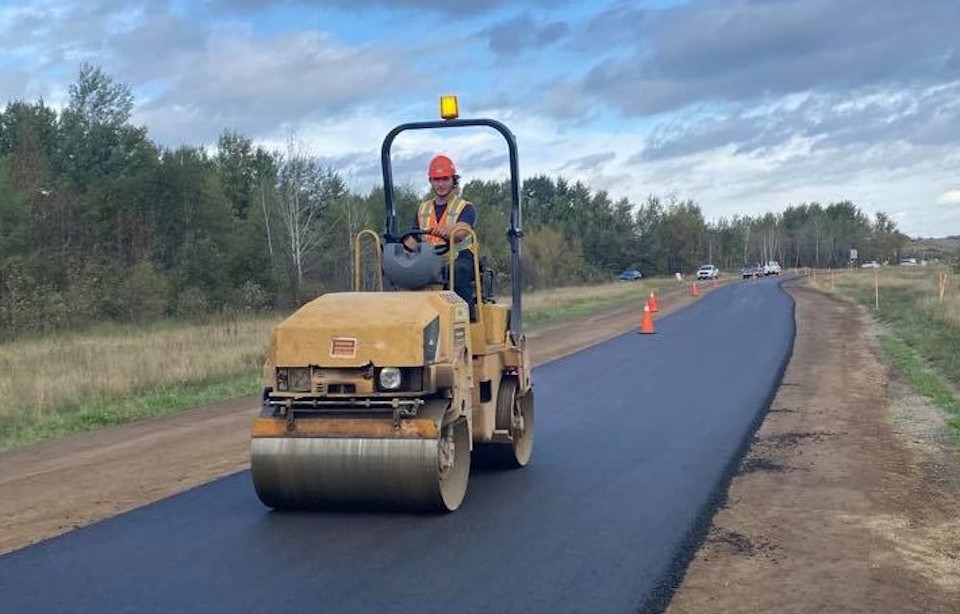The City of Thunder Bay is trying out a natural by-product of the pulp-making process it describes as a greener, more environmentally-friendly alternative to the asphalt it currently uses to pave its streets.
At the Mapleward Road landfill site on Sept. 20, a crew paved an existing gravel road with asphalt that contains lignin.
The trial project will help determine whether lignin is suitable in cold climates for replacing some of the bitumen that's mixed with aggregate to make asphalt.
According to FPInnovations, the not-for-profit organization that's spearheading the trial, lignin is known as the "natural wood glue" as it binds together the cellulose fibres in plants.
It's believed that it could serve the same purpose in the production of asphalt pavement.
A trial conducted this summer in Sturgeon County, Alberta was the first in Canada, and was deemed successful.
Thunder Bay is the first location for a trial in Ontario. It's an ideal location for a test. In 2019 – with the support of the city's Community Economic Development Commission – FPInnovations and Resolute Forest Products commissioned a new thermomechanical pulp bio-refinery in Thunder Bay.
This plant produces lignin for use in new products.
FPInnovations said partially replacing bitumen with lignin as a binder in asphalt has also been tested previously under Europe's milder winter conditions, with lignin substitution rates as high as 50 per cent.
The city's director of Engineering and Operations, Kayla Dixon, said if the Thunder Bay trial succeeds and meets the city's asphalt performance specifications, "there would be many long-term economic and environmental benefits in using the lignin-based asphalt."
Pioneer Construction is FP's field test partner in Thunder Bay. General Manager Fred Hakala has said the company is happy to contribute to the project, but "tests must demonstrate that the product...will offer equivalent if not superior qualities to the existing products."
Hakala also stated that the economic impact must be clearly evaluated both for asphalt producers and for customers.
– TBayNewswatch




